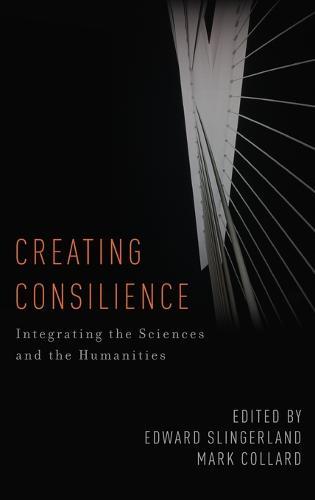Overview
Calls for a consilient or vertically integrated approach to the study of human mind and culture have, for the most part, been received by scholars in the humanities with either indifference or hostility. One reason for this is that consilience has often been framed as bringing the study of humanistic issues into line with the study of non-human phenomena, rather than as something to which humanists and scientists contribute equally. The other major reason that consilience has yet to catch on in the humanities is a dearth of compelling examples of the benefits of adopting a consilient approach. Creating Consilience is the product of a workshop that brought together internationally-renowned scholars from a variety of fields to address both of these issues. It includes representative pieces from workshop speakers and participants that examine how adopting such a consilient stance -- informed by cognitive science and grounded in evolutionary theory -- would concretely impact specific topics in the humanities, examining each topic in a manner that not only cuts across the humanities-natural science divide, but also across individual humanistic disciplines. By taking seriously the fact that science-humanities integration is a two-way exchange, this volume takes a new approach to bridging the cultures of science and the humanities. The editors and contributors formulate how to develop a new shared framework of consilience beyond mere interdisciplinarity, in a way that both sides can accept.
Full Product Details
Author: Edward Slingerland (Associate Professor of Asian Studies , Canada Research Chair in Chinese Thought and Embodied Cognition, University of British Columbia) ,
Mark Collard (Associate Professor and Canada Research Chair in Human Evolutionary Studies, Simon Fraser University)
Publisher: Oxford University Press Inc
Imprint: Oxford University Press Inc
Dimensions:
Width: 16.10cm
, Height: 3.60cm
, Length: 23.60cm
Weight: 0.744kg
ISBN: 9780199794393
ISBN 10: 0199794391
Pages: 472
Publication Date: 24 November 2011
Audience:
College/higher education
,
Postgraduate, Research & Scholarly
Format: Hardback
Publisher's Status: Active
Availability: To order

Stock availability from the supplier is unknown. We will order it for you and ship this item to you once it is received by us.
Reviews
the book is distinctive in its clarity and impressive in providing the reader with a rich case-study repository. * Martin Palecek, Journal of Cognitive Historiography * The book is written for a mixed audience of scientists and humanists, and as such is widely accessible in style, with technical terms being explained in the text. The wide ranging case studies show it to be an important read, not just for those who consider themselves to be in disciplines 'near the boundary' between the humanities and sciences, but for all scientists and humanists. The book well serves the most important function a book of its kind can - to provoke debate among scholars who might not ordinarily communicate with one another. * Ruth Hibbert, Metapsychology Online Reviews *
<br> The book is written for a mixed audience of scientists and humanists, and as such is widely accessible in style, with technical terms being explained in the text. The wide ranging case studies show it to be an important read, not just for those who consider themselves to be in disciplines 'near the boundary' between the humanities and sciences, but for all scientists and humanists. The book well serves the most important function a book of its kind can -- to provoke debate among scholars who might not ordinarily communicate with one another. --Ruth Hibbert, Metapsychology Online Reviews<p><br>
Author Information
Edward Slingerland is Professor of Asian Studies, Canada Research Chair in Chinese Thought and Embodied Cognition, University of British Columbia. Mark Collard is Associate Professor and Canada Research Chair in Human Evolutionary Studies, Simon Fraser University




